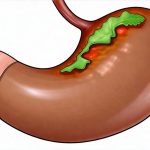The feeling is familiar to many: deeply engrossed in a challenging task, a creative project demanding every ounce of mental energy, or simply pushing through a long workday – and then…a wave of nausea creeps in. It’s not the kind associated with illness, but something different, tied directly to intense concentration and effort. This phenomenon isn’t widely discussed, often dismissed as a quirk or endured in silence, yet it significantly impacts productivity, well-being, and even the ability to continue working effectively. Understanding why this happens, and more importantly, learning how to manage it, is crucial for anyone who frequently finds themselves in states of deep focus. It’s about recognizing your body’s signals and proactively mitigating a disruption that can derail both work and health.
This isn’t merely a matter of discomfort; persistent nausea linked to intense work can be indicative of underlying stress responses or imbalances. The brain, while incredibly adaptable, has limits. When relentlessly focused, it directs significant resources toward the task at hand, sometimes at the expense of other bodily functions. This can manifest in various ways, from headaches and muscle tension to digestive upset and, ultimately, nausea. Ignoring these signals isn’t a sign of strength—it’s an invitation for burnout and chronic health issues. The goal isn’t to eliminate focus altogether, but to learn how to achieve it sustainably, with attention paid to the body’s needs alongside mental demands.
Physiological Roots of Focus-Related Nausea
The connection between intense concentration and nausea is complex, stemming from a confluence of physiological factors. It’s rarely “just” psychological; there are demonstrable biological mechanisms at play. One key element is the activation of the autonomic nervous system. When we’re deeply focused – especially under pressure – our sympathetic nervous system (the ‘fight or flight’ response) kicks into gear. This releases hormones like cortisol and adrenaline, preparing us for action. While beneficial in short bursts, prolonged activation can disrupt normal bodily functions, including digestion. The body prioritizes sending blood flow to the brain and muscles needed for focus, potentially reducing it to the digestive system.
This shift can lead to slowed gastric emptying – meaning food takes longer to move through your digestive tract – and increased sensitivity to stimuli within the gut. Essentially, even minor digestive processes become more noticeable, contributing to feelings of discomfort or nausea. Furthermore, intense mental effort itself consumes a significant amount of energy. This metabolic demand can impact blood sugar levels, creating fluctuations that also contribute to nausea. Consider how low blood sugar often triggers feelings of weakness and sickness; the same principle applies here. Finally, many individuals unconsciously hold their breath or alter their breathing patterns when deeply focused, leading to reduced oxygen intake and further exacerbating digestive issues.
It’s important to note that these factors often interact with each other in a reinforcing loop. Stress from work leads to sympathetic nervous system activation, which impacts digestion, which then increases discomfort, amplifying stress…and so on. This is why addressing the problem requires a multifaceted approach. Recognizing this isn’t about weakness; it’s about understanding how your body responds to sustained mental exertion and taking steps to support its natural processes. You might also find information about related issues in articles discussing constipation patterns.
Identifying Your Personal Triggers
Nausea induced by focus isn’t one-size-fits-all. What triggers it in one person may not affect another. The first step toward managing the issue is identifying your specific triggers. This requires some self-observation and mindful attention to when these episodes occur.
- Keep a journal: Note down instances of nausea, along with details about your work at that time. What were you working on? How long had you been focused? What was your stress level? What had you eaten recently?
- Pay attention to physical sensations: Beyond the nausea itself, are there other accompanying symptoms? Headaches? Muscle tension? Changes in breathing? These can provide clues about the underlying cause.
- Consider external factors: Are certain environments more prone to triggering this? A dimly lit room? A cluttered workspace? Loud noises? Identifying these environmental factors is also valuable.
Once you start recognizing patterns, you’ll be better equipped to anticipate and prevent episodes. For example, if you notice that nausea consistently appears after several hours of coding without a break, you know that incorporating more frequent breaks is essential. If it’s linked to specific types of tasks – perhaps complex data analysis – then adjusting your approach or workload might be necessary. Self-awareness is the cornerstone of effective management. Understanding these triggers can also help with recognizing stool changes that may accompany periods of intense focus and stress.
The Power of Strategic Breaks and Movement
One of the most effective strategies for combating focus-related nausea is incorporating regular, strategic breaks into your workflow. These aren’t just about stepping away from the screen; they’re about actively shifting your physiological state. Short, frequent breaks are generally more beneficial than long, infrequent ones. Think micro-breaks every 20-30 minutes and longer breaks every hour or two.
During these breaks:
1. Move your body: Even a quick walk around the room can help restore blood flow to the digestive system and reduce muscle tension. Stretching is also highly beneficial.
2. Practice deep breathing exercises: This helps calm the nervous system and counteract the effects of sympathetic activation. Simple diaphragmatic breathing (belly breathing) can be incredibly effective.
3. Hydrate: Sip on water or herbal tea. Dehydration can exacerbate nausea, so staying adequately hydrated is crucial.
4. Shift your focus: Avoid immediately switching to another work-related task. Instead, engage in something completely different – listen to music, look out the window, or chat with a colleague (if possible).
The key is to actively disrupt the state of intense concentration and allow your body to reset. Movement, in particular, is often underestimated. It physically changes your physiological state, signaling to your nervous system that you’re no longer in ‘fight or flight’ mode. Prioritize movement as part of your workday, not as an extra activity tacked on at the end. This can also help manage related symptoms like air swallowing.
Nutritional Considerations and Hydration
What and when you eat plays a significant role in managing nausea, especially during periods of intense focus. Avoid large, heavy meals before tackling demanding tasks – they require more digestive effort, increasing the likelihood of discomfort. Instead, opt for smaller, more frequent snacks throughout the day that provide sustained energy without overwhelming your system.
- Choose easily digestible foods: Bananas, rice, applesauce, and toast (the BRAT diet) are often well-tolerated even when feeling nauseous.
- Prioritize complex carbohydrates: These provide a slower release of glucose, helping to stabilize blood sugar levels.
- Limit caffeine and sugary drinks: While tempting for a quick boost, they can lead to energy crashes and exacerbate nausea.
- Stay hydrated: As mentioned earlier, dehydration is a common trigger. Carry a water bottle with you and sip on it consistently throughout the day. Ginger tea has also been shown to have anti-nausea properties (although individual responses may vary).
It’s also worth considering whether any food sensitivities or intolerances might be contributing to your nausea. If you suspect this, consult with a healthcare professional to discuss testing options. Remember that nutrition isn’t about restriction; it’s about fueling your body in a way that supports both mental and physical well-being. Optimizing your diet is an investment in your productivity and overall health. You may also find helpful information on how social overload can impact digestion, creating similar discomforts. And remember that a change in routine or purpose might cause constipation. Finally, if you experience significant digestive upset related to stress, understanding soft stool formation can be helpful too.


















